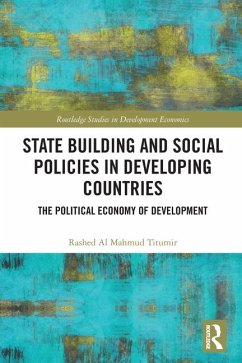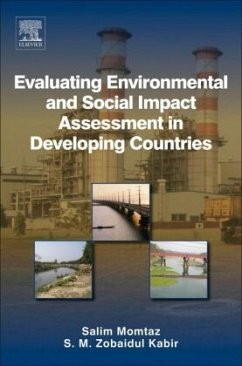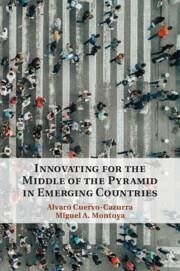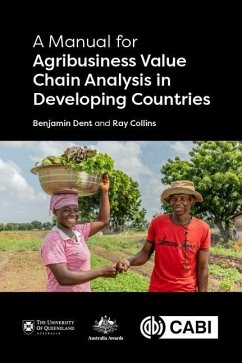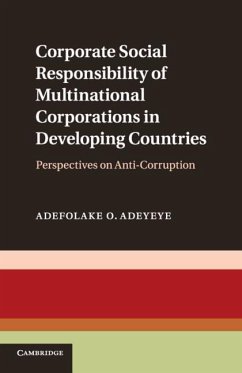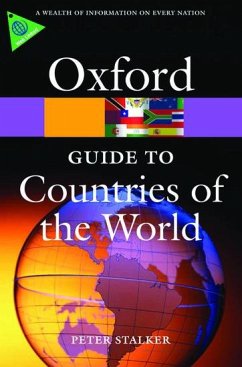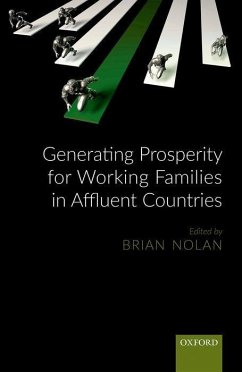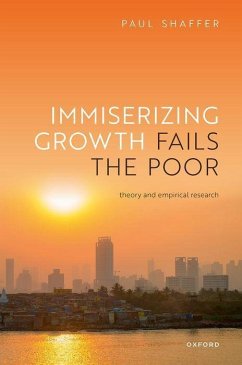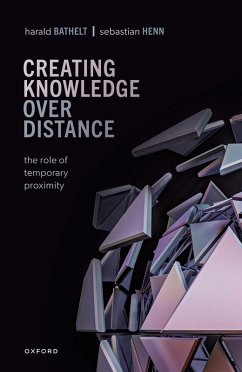
Broschiertes Buch
Social Security in Developing Countries
Versandkostenfrei!
Versandfertig in über 4 Wochen

PAYBACK Punkte
20 °P sammeln!




The term 'social security' has a very different meaning in underdeveloped countries and is best understood as poverty alleviation. This work seeks to define social security in its various forms and to examine what sort of programmes are most suitable for developing countries.
Ehtisham Ahmad is an economist currently directing the Financing Sustainable Urban Transitions with the Coalition of Urban Transitions. Ahmad is a Senior Fellow at the University of Bonn and a Visiting Senior Fellow at the London School of Economics since 2010. Ahmad held senior positions in the Fiscal Affairs Department of the International Monetary Fund for two decades. Jean Drèze, development economist, has taught at the London School of Economics and the Delhi School of Economics and is currently Visiting Professor at Ranchi University. He has made wide-ranging contributions to development economics and public policy, with special reference to India. He is co-author (with Amartya Sen) of Hunger and Public Action (Oxford University Press, 1989), An Uncertain Glory: India and Its Contradictions (Penguin, 2013), and Sense and Solidarity (OUP: 2019). John Hills is Professor of Social Policy and Director of the Centre for Analysis of Social Exclusion (CASE) at the London School of Economics. His research interests include income distribution and the welfare state, social security, housing and taxation. He led an independent review of the measurement of fuel poverty for the Department of Energy and Climate Change that reported in March 2012. He was also Chair of the National Equality Panel (2008-2010), carried out a review of the aims of social housing for the Secretary of State for Communities in 2006-07 and was one of the three members of the UK Pensions Commission from 2003 to 2006. He was Co-Director of the LSE's Welfare State Programme (1988-1997), and Senior Adviser to the Commission of Inquiry into Taxation, Zimbabwe (1984-86). He worked at the Institute for Fiscal Studies (1982-84), for the House of Commons Select Committee on the Treasury (1980-82), and at the Department of the Environment (1979-80). Amartya Sen teaches economics and philosophy at Harvard University, and was previously Master of Trinity College, Cambridge. He has served as President of the American Economic Association, the Indian Economic Association, the International Economic Association, and the Econometric Society. His awards include the Bharat Ratna (India), Commandeur de la légion d'honneur (France), the National Humanities Medal (USA), Honorary Companion of Honour (UK), Ordem Nacional do Mérito Científico (Brazil), and the Nobel Prize in Economics.
Produktdetails
- Verlag: Oxford University Press
- Seitenzahl: 496
- Erscheinungstermin: 27. März 2020
- Englisch
- Abmessung: 231mm x 155mm x 28mm
- Gewicht: 750g
- ISBN-13: 9780198860150
- ISBN-10: 0198860153
- Artikelnr.: 58762803
Herstellerkennzeichnung
Libri GmbH
Europaallee 1
36244 Bad Hersfeld
gpsr@libri.de
Für dieses Produkt wurde noch keine Bewertung abgegeben. Wir würden uns sehr freuen, wenn du die erste Bewertung schreibst!
Eine Bewertung schreiben
Eine Bewertung schreiben
Andere Kunden interessierten sich für


